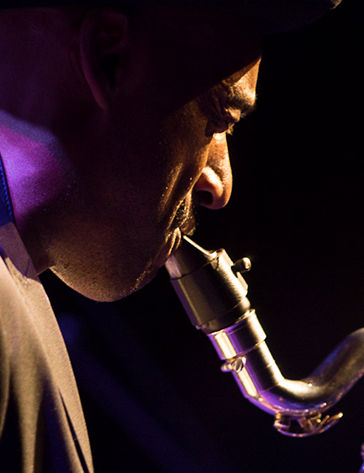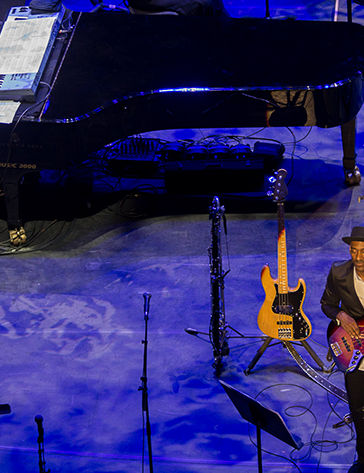Headliner talks to Brooklyn-born Marcus Miller backstage at the Monte-Carlo Jazz Festival after the über-talented multi-Grammy Award winner showed a packed house what being a musician is really all about...
When was it that you realised music was your natural path?
Well, my father played the piano, his father played the piano, my father’s cousin played the piano [smiles]. He played with Miles [Davis] in the ‘50s - his name was Minty Kelly - so I come from a very musical family, so it wasn’t like I had a choice! I wanted to be a baseball player, an athlete, and I kind of pursued that, but at the time I was 11-years-old, so there’s only so much pursuing you can do! And besides, music had taken hold of me by then and it felt so natural, so simple; my father was showing me chords, and every Sunday I would perform for my family; then eventually I got into a funk band, you know – it was just all very natural.
Your father was also a choir master, right?
Yes, my father was in a black episcopal church – an African orthodox church – but in my neighbourhood growing up in Jamaica (Queens) and Brooklyn in the ‘70s man, it was all about souuuuul music! [closes eyes and smiles] It was just enormous – but I’ve got a whole lot of other influences too though, man; I played in African bands, I played in salsa bands, I played in calypso bands, I played all sorts of music – a lot of straight-ahead jazz. I think the two main influences for me are funk and straight-ahead jazz.
You then became a very successful session musician. Do you think that’s somewhat of a lost art these days - and is that because of the advances in technology and the ease of programming drums and sampling instruments?
Oh yeah, definitely; it’s almost impossible to do what I did in today’s industry. I mean, I was working at least 16 hours a day in studios, all week long – in fact, come to think of it, all year long, because everyone needed musicians. Now, the only people who actually use live musicians in the pop world are people who are doing live shows where you want to see the actual energy, but with the records, the computers are doing the majority of the work, so there’s no way that you could do what I was doing, or a guy like Steve Gadd (acclaimed NY-based session drummer who’d sat in with Dizzie Gillespie by the age of 11) was doing – we just went from studio to studio and it was an amazing experience. I don’t think it’s even possible to do that today.
And we’re talking about a range of genres and indeed stars that you were playing for at this time, aren’t we – not just the jazz fusion stuff that you now live and breathe? Oh yeah – I mean, the fusion and funk records are the ones that people noticed our names on, but I was playing on Mariah Carey records, Elton John records, Carly Simon records – everything. As a studio musician, man, you played on everything, so it was a very well-rounded education you got back then.
You were with Miles Davis for 10 years...
Yeah, off and on it was about 10 years. I started out in his band in 1981 as a bass player for two years and I left, and told him I wanted to develop as a composer and as a producer; and then I actually got the chance to come back to him as a composer and a producer. We did an album called Tutu, which was a pretty popular album, and that was the beginning of my second relationship with Miles; it was really incredible because I got to spend so much one-on-one time with him, you know? We’d just talk all day about the ‘40s and about his life - what he liked what he didn’t like; it was kind of beautiful, man. When I started my band, I was basically playing music that I’d written for Miles. It was all from that catalogue and then eventually I began to develop more of my own sound; I’d developed the sound for Miles, which people kind of recognised I had a huge hand in, so I started from that and then began to build on it.
Is there anything you carry with you when you’re on the road - something that you absolutely cannot be without? I know how musicians can be superstitious...!
I have a Bruce Lee doll! I have a song called Bruce Lee on an album, Silver Rain, from 2005, and a Japanese fan gave me this action figure of Bruce Lee; and my roadie put it on the amp, and it was so cool, man, as Bruce was kind of overseeing the festivities! But, you know how it is, this was 2005 man, so it’s been sitting on the amp for eight years – his head’s come off, his arm’s come off, his leg’s come off – and we just get him back together and sit him right back on; Bruce presides over everything...

